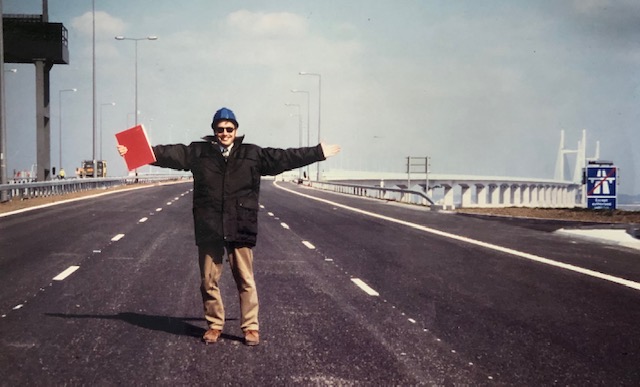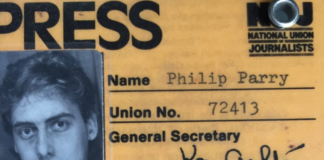- Wordy again part three - 16th February 2026
- ‘Lies, damned lies etc…’ - 13th February 2026
- Missing in action - 12th February 2026

During 23 years with the BBC, and 40 years in journalism (when he was trained to use simple language, avoiding jargon), for our Editor Welshman Phil Parry working in a free environment has always been fundamental so that he could pursue his craft unhindered, and this is now underlined by a new book which explores how the authorities in China have glossed over past horrors.
Earlier Phil has described how he was helped to break into the South Wales Echo office car when he was a cub reporter, recalled his early career as a journalist, the importance of experience in the job, and making clear that the‘calls’ to emergency services as well as court cases are central to any media operation.
 He has also explored how poorly paid most journalism is when trainee reporters had to live in squalid flats, the vital role of expenses, and about one of his most important stories on the now-scrapped 53 year-old BBC Wales TV Current Affairs series, Week In Week Out (WIWO), which won an award even after it was axed, long after his career really took off.
He has also explored how poorly paid most journalism is when trainee reporters had to live in squalid flats, the vital role of expenses, and about one of his most important stories on the now-scrapped 53 year-old BBC Wales TV Current Affairs series, Week In Week Out (WIWO), which won an award even after it was axed, long after his career really took off.
Phil has explained too how crucial it is actually to speak to people, the virtue of speed as well as accuracy, why knowledge of history and teaching the subject is vital, how certain material was removed from TV Current Affairs programmes when secret cameras had to be used, and some of those he has interviewed.
He has disclosed as well why investigative journalism is needed now more than ever although others have different opinions, how the coronavirus (Covid-19) lockdown played havoc with media schedules, and the importance of the hugely lower average age of some political leaders compared with when he started reporting.

It is the bedrock of everything I do.
Journalists like me MUST be allowed to expose wrong-doing wherever it is found, without worrying about whether official policy approves of it or not.
Sadly this is not the case in large parts of the globe, including in China the second most populous country in the world after India (over 1.4 billion people live there).
A book just out by an award-winning journalist has emphasised this salient fact – Sparks by Ian Johnson. He has won a Pulitzer prize, and is now a fellow at the Council on Foreign Relations.

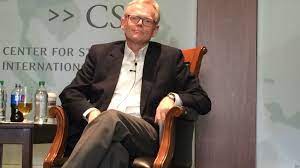
Mr Johnson makes clear that the Chinese President Xi Jinping regards “counter-history” (the attempt by some people in China to offer anything other than the sanitised official record, and provide truthful accounts), as an “existential threat”. So Mr Xi’s interpretation of ‘correct’ history is contained in a 36,000-character document, and presents what officials call a “magnificent epic”, with Mr Xi’s “new era” as its ‘glorious culmination’.
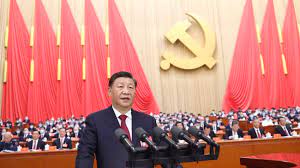
Only one paragraph in this ‘official history’ deals with the horrors (“mistakes”, it calls them) of the period under Mao Zedong, when millions died in a man-made famine and political violence. It makes no mention of the deaths he caused, and blames others in the leadership for the Cultural Revolution’s “many crimes”.
Deng Xiaoping’s crushing of the Tiananmen Square protests in 1989, at the cost of hundreds if not thousands of lives, was dealt with in just two sentences – it is described as “a severe political disturbance” against which the party “took a clear stand”. This ‘correct’ history of Mr Xi’s, does not even hint at the army’s intervention, let alone its machine-gunning of protesters. For Mr Xi, getting the Chinese Communist Party (CCP) to agree on this narrative was not a mere ivory-tower exercise, but aimed at demonstrating his power and silencing anyone who might attempt to undermine his or the party’s authority by dwelling on past failings and brutality.
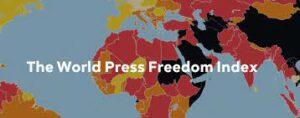 But China is, unfortunately, not alone in cracking down on the media.
But China is, unfortunately, not alone in cracking down on the media.
According to the World Press Freedom Index (WPFI) 2023 – which evaluates the environment for journalism in 180 countries or territories, and is published on World Press Freedom Day (WPFD) (May 3) – the situation is “very serious” in 31 countries, “difficult” in 42, “problematic” in 55, and “good” or “satisfactory” in only 52 countries. In other words, the environment for journalists is ‘bad’ in seven out of 10 countries. Norway is ranked first for the seventh year running, with Ireland second, and Denmark third. The last three places are occupied solely by Asian states with North Korea at the bottom of 180 countries.
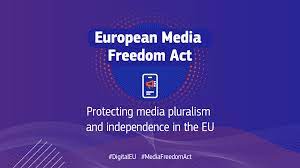
This is all set against a worrying backdrop. Even in the UK there is cause for concern, because ‘celebrity’ ‘journalism’, and low-quality, dumbed-down, ‘reports’ seem to prevail, which are light years away from the work I do (where I work in a free media environment).
In the EU there is official recognition of media freedom with it saying last year: “… a European Media Freedom Act (was adopted today), a novel set of rules to protect media pluralism and independence in the EU. The proposed Regulation includes, among others, safeguards against political interference in editorial decisions and against surveillance…”.


But these fine words belie the reality.
For example, after Slovenia seceded from Yugoslavia in 1991, it gave Radio Television of Slovenia (RTV-SLO) a mandate to report independently, unlike the state propaganda that passed for news under communism. Yet the Government there is now refusing to pay RTV-SLO’s budget, and wanted to pass a new media law that will make it easier to control.

In the Netherlands the situation appears just as bad. Reporters on the national public news broadcaster, NOS, have been physically attacked at protests, and while reporting on Covid-19 measures. NOS removed its logo from satellite vans after they were repeatedly harassed in traffic.
In Latvia, the chief risk is the legal and financing structure. The country’s public-media law fails to include a set-aside tax, like the television licence fee that funds the BBC (which could now be cut after the Martin Bashir affair), and that leaves it vulnerable to political pressure, while it is not clear that the supervisory board will be protected from political appointments.
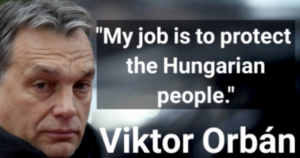
When Viktor Orbán won power in Hungary in 2010 he adapted Vladmir Putin’s blueprint, transforming the state media agency MTVA into a propaganda organ. The group was restructured into a shell company in a fashion that exempted it from the law governing public media, and during the European Parliament (EP) elections in 2019, editors at MTVA were recorded instructing reporters to favour Mr Orban’s Fidesz party.
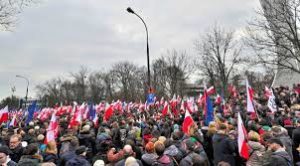
Poland’s Law and Justice (PLS) party followed Mr Orban’s example when it won power in 2015, and quickly turned TVP, the public television network, into a bullhorn for the party. The network championed campaigns against gay rights and demonised the opposition mayor of Gdansk. After he was assassinated by an extremist in 2019, a court told TVP to pay damages, but it did not comply.
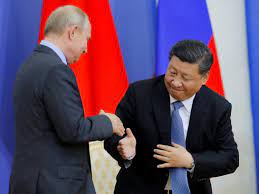
However outside the EU, the problems facing an independent media are even worse.
The prime example, of course, is Russia where RT (Russia Today) is accused of being a mouthpiece for Mr Putin. By the mid-2000s Russian news shows’ agendas were being set at government-led meetings.
Mr Putin signed a law that will allow Russia to declare journalists and bloggers “foreign agents” in a move that critics say will allow the Kremlin to target government critics.
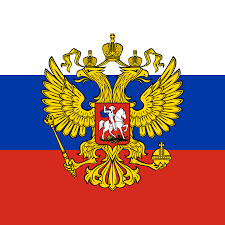
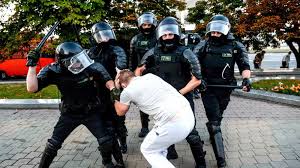
Under the vaguely worded law, Russians and foreigners who work with the media or distribute their content and receive money from abroad would become ‘enemies of the state’, potentially exposing journalists, their sources, or even those who share material on social networks to foreign agent status.
In Belarus the situation is also appalling. At least 16 journalists there are behind bars, and riot police are singling out reporters for arrests and beatings at protests as the media is intimidated.
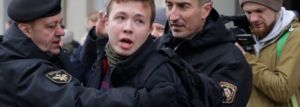
The embattled dictator Alexander Lukashenko, forced a Ryanair passenger plane to make an unscheduled stop in his capital in order to arrest the editor of an internet channel, NEXTA, that has been reporting on his crackdown. Roman Protasevich was taken off the plane, which was flying from Athens to Vilnius, the Lithuanian capital. Citing what it said was ‘evidence’ that there were explosives on board, the authorities forced the aircraft to land in Minsk as it passed through Belarusian airspace on its way to neighbouring Lithuania, sending a MiG fighter plane to escort the Ryanair jet down. The state news agency later reported that no explosives had been found, and it seems certain that the incident was invented purely as a way of arresting the journalist.

The alarming details came after Marina Zolotova, the editor of Tut.by, an independent news website in the counrry, said: “Blue press jackets and press badges have become targets. When journalists go to cover a protest they cannot be sure that they will come home. This is a real war by the authorities against independent journalism and their own people.”
It is clear that Mr Lukashenko is waging a war against journalists who have dared to report on his regime’s brutal crackdown against peaceful protesters. At least eight protesters were killed and hundreds more have alleged torture and rape, in police custody.

Among the most high-profile of those in prison is Yekaterina Bakhvalova, who was arrested as she filmed riot police firing stun grenades into a crowd demonstrating against the death in police custody of a fellow protesters.
Around the world it seems to be becoming worse for media freedom and investigative journalism, while even in countries which have a generally good record on media freedom, there are worries.
Dozens of reporters covering the anti-racism protests after the killing of the unarmed black man George Floyd that rocked the US, were apparently targeted by security forces using tear gas, rubber bullets and pepper spray. In many cases, the reporters said they were attacked despite showing clear press credentials.
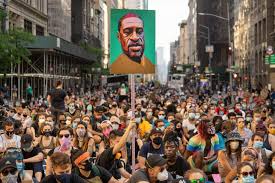
Such assaults “are an unacceptable attempt to intimidate (reporters)“, said the Committee to Protect Journalists (CPJ), a New York-based lobbying group. Attacks on journalists carried out by protesters have also been reported. The arrest of a CNN news crew live on air in Minneapolis, first drew global attention to how law enforcement authorities in the city were treating reporters covering the protests.
In total in the US, the Press Freedom Tracker (PFT), a non-profit project, says it is examining more than 100 “press freedom violations” at protests. About 90 cases involve attacks.
Despite operating in a (largely) free environment, the abuse I have to put up with is constant.
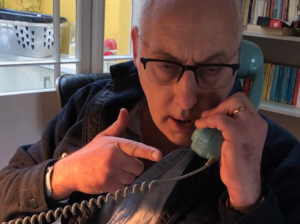
In the past I have been called online (wrongly), a “bastard”, a “liar”, a “misogynist”, a “little git”, and (accurately), a “troublemaker”, a “nuisance”, “irritating”, as well as “annoying” but this pales into insignificance with what is happening elsewhere around the globe.
It is, of course, FAR worse in China, where you have to give the ‘correct’ version of history…
The memories of Phil’s astonishing 40 year award-winning career in journalism (when he was able to operate in a largely free environment) as he was gripped by the rare neurological disabling condition, Hereditary Spastic Paraplegia (HSP), have been released in a major book ‘A GOOD STORY’. Order the book now!

Regrettably publication of another book, however, was refused, because it was to have included names.








